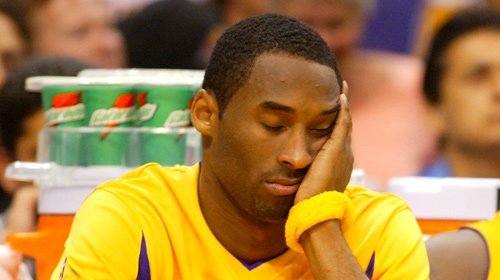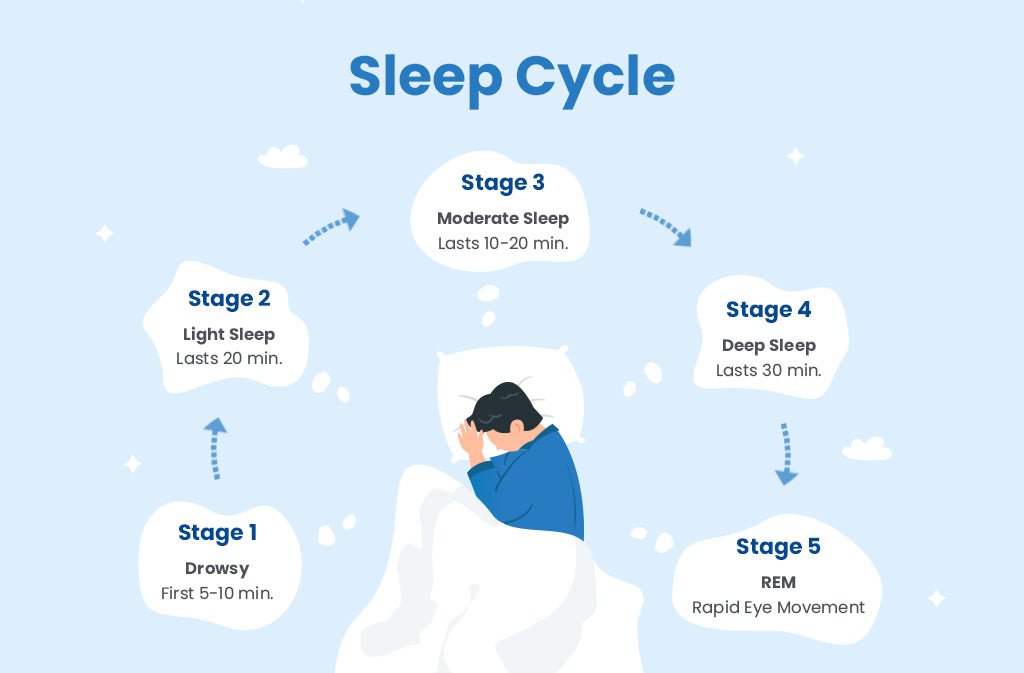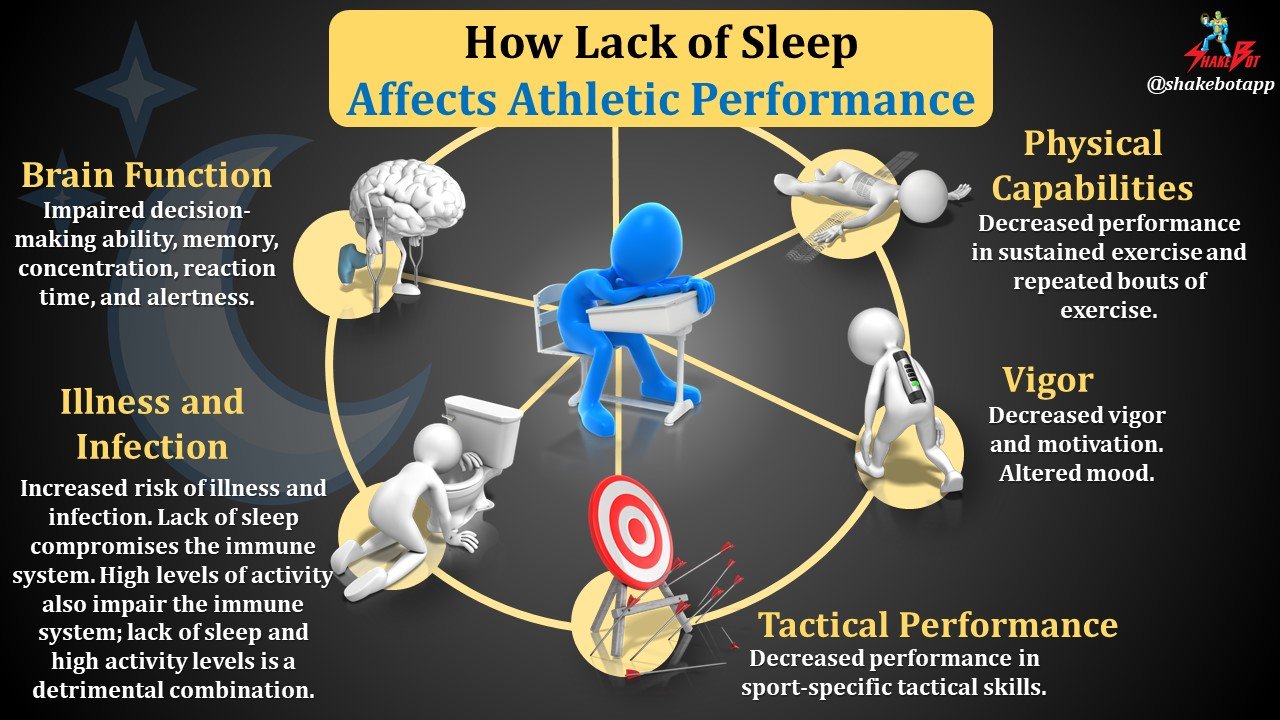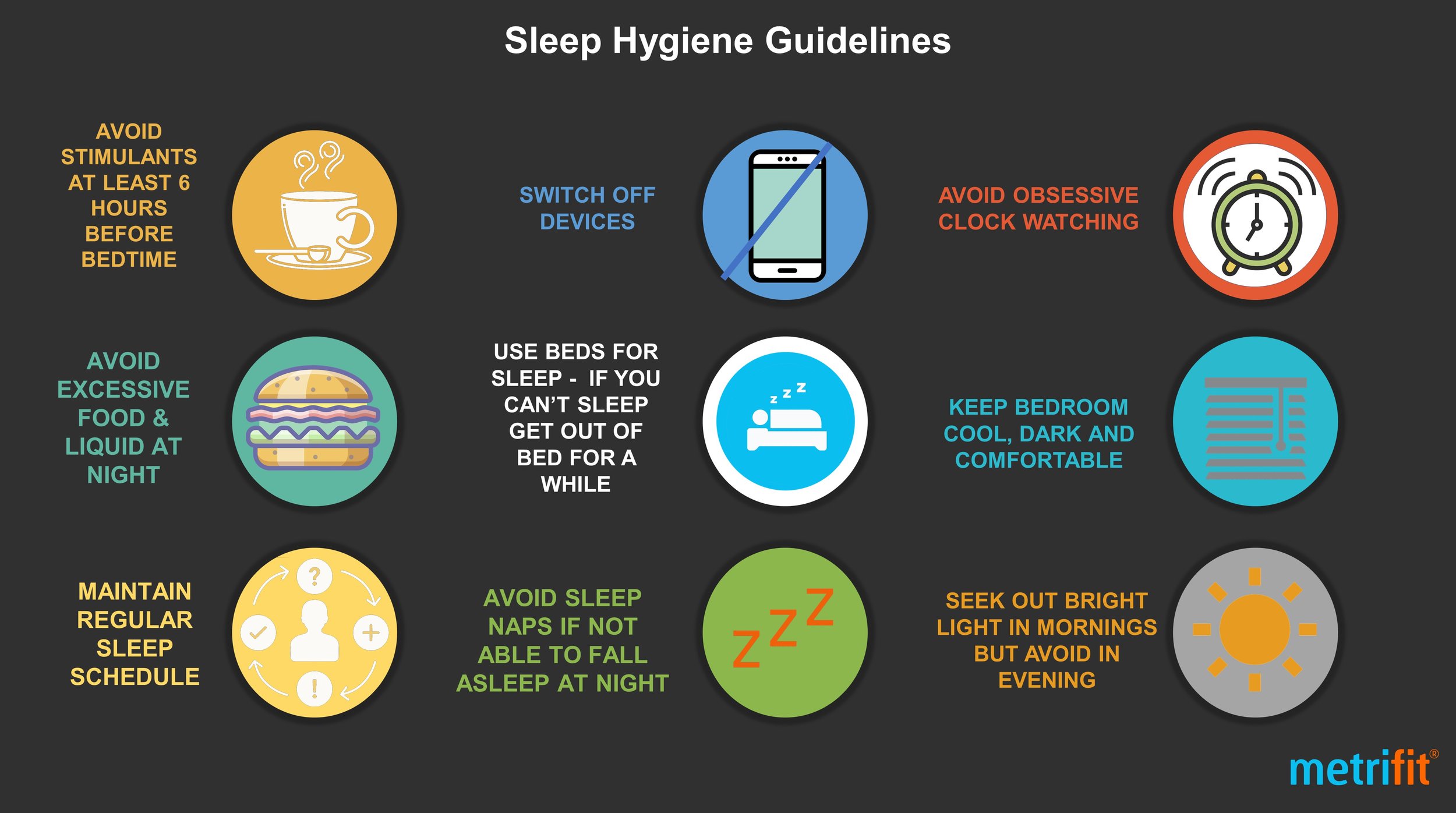LET’S TALK ABOUT SLEEP
Did you know that sleep takes up 1/3 of our lives? Sleep is essential for recovery because this is where physical, physiological and psychological restoration takes place. Athletes are generally subjected to higher physical, physiological and psychological stresses due to the demands of their sports compared to the general population. Therefore, the need to recover is subsequently greater and one of the ways this can be achieved (FOR FREE!) is through sleep.
STAGES OF SLEEP
Starts with Non-Rapid Eye Movement Sleep (NREM) for an hour or 2 before moving to Rapid Eye Movement (REM) Sleep. REM and NREM Sleep will cycle around in 90-minute intervals. The recommended 7.5 hours of sleep roughly equates to around 5 of these cycles. Studies reporting global sleep quality show that 50%–78% of elite athletes experience sleep disturbance and 22%–26% suffer highly disturbed sleep.
FACTORS AFFECTING POOR SLEEP QUALITY
So, what are some factors that might be causing such a high prevalence of poor sleep quality amongst athlete populations.
Travel
Travelling on a long flight generally reduces sleep duration and quality. It may also take a couple of nights to readjust to local times. Long haul east travel generally has greater negative effects on sleep than long haul west travel [1]. Cumulative fatigue can also be experienced by athletes who travel regularly throughout the season.
Training Schedules
Early morning training and competition reduce athletes’ sleep duration and increase pretraining fatigue levels. Intense training sessions and matches performed in the evening (18:00–21:00 hours) are commonly associated with later sleep onset time, shorter time in bed and less total sleep obtained [2].
Competition
In the night before competition, individual athletes often lose sleep due to the anxiety or excitement of the upcoming event. However, the same is not for team sport athletes who actually report similar amounts of sleep on the night preceding competition [5]. The sleep effects are more pronounced on the day of competition for team sport athletes after the event has occurred [6]. Earlier competition times have less effect on sleep duration and efficiency. Night competition reduces sleep duration, sleep efficiency and increase sleep latency.
These are just some of the factors influencing the poor quality of sleep amongst athlete populations. Some of these factors are unavoidable but are there any strategies athletes can use to mitigate the effects of poor sleep. Fortunately, the answer is YES!
HOW CAN LACK OF SLEEP AFFECT PERFORMANCE
INJURY ANd ILLNESS
One study administered the inoculation of a dose of the common cold in athletes whilst having their sleep tracked. Those who slept <7h night were 3x more likely to develop an upper respiratory tract infection than those sleep >8h/night. Combining this with increased training loads and reduced sleep opportunities due to training scheduling, it is likely there would be a risk of illness in athletes [3].
OVERTRAINING
With most training programs, athletes are inherently going to be exposed to periods of harder training. This is to cause enough training stress to stimulate physiological adaptations to improve performance. When the stress-recovery balance becomes disrupted i.e. from reduced sleep, an abnormal response can occur causing an overtraining effect.
COGNITIVE IMPAIRMENT
Poor sleep quality can impact decision making ability, memory, reaction time and concentration. This can impair the athlete’s ability to train optimally in preparation for competition.
PHYSICAL IMPAIRMENT
After restricted sleep, physical performance requires a higher physiological demand. This leads to athletes exhausting faster than normal. Athletes also report higher perceived exertion levels compared to when rested after a good night’s sleep.
SOLUTIONS FOR BETTER SLEEP HYGIENE
Room Environment
To create a conducive environment for sleep consider the optimal temperature of room (18 degrees Celsius) and Humidity (40-60%). The room should be kept as dark as possible. You may also consider ear plugs or white noise apps to suppress noise so you are not woken up.
Avoid Caffeine before bed
Last caffeine intake should be a minimum of 6 hours before sleep. Caffeine can block adenosine receptors which are a sleep promoting chemical that is produced when we are awake. Additionally, caffeine can interfere with circadian rhythm and delays the onset of sleep if consumed close to bedtime.
Avoid Blue Light emitted from screens
Blue light will suppress melatonin production that is needed to induce sleep. Melatonin is a hormone that the brain produces when we are in a dark location. If light is emitted during sleeping hours, the brain will be unable to produce melatonin. Melatonin is mainly responsible for the timing of your circadian rhythm.
Hot Showers before bed
Theoretically, a rise in skin temperature and decrease in core temperature improves your ability to stay asleep by reducing proximal skin temperature and increasing distal skin temperature. A 5-10 min shower at 40 degrees can help improve sleep onset latency and increases sleep efficiency.
Mouth Taping
Mouth taping is a recent intervention for sleep which is aimed at promoting nasal breathing during sleep. It can also reduce the effects of dry mouth and bad breath upon waking as well as reducing the risk of gum diseases.
REFERENCES
Fowler PM, Knez W, Crowcroft S, Mendham AE, Miller J, Sargent C, Halson S, Duffield R. (2017). Greater Effect of East versus West Travel on Jet Lag, Sleep, and Team Sport Performance. Med Sci Sports Exerc, 49(12):2548-2561
Sargent C, Lastella M, Halson SL, Roach GD. (2014). The impact of training schedules on the sleep and fatigue of elite athletes. Chronobiol Int, 31(10): 1160-1168.
Cohen, S., Doyle, W.J., Alper, C.M., Janicki-Dverts, D., turner, R.B. (2009). Sleep habits and susceptibility to the common cold. Arch Intern Med, 169(1):62-7.
Hausswirth C, Louis J, Aubry A, Bonnet G, Duffield R, LE Meur Y. (2014). Evidence of disturbed sleep and increased illness in overreached endurance athletes. Med Sci Sports Exerc, 46(5):1036-45.
Erlacher, D., Ehrlenspiel, F., Adegbesan, O.A., El-Din, H.G. (2011) Sleep habits in German athletes before important competitions or games. J Sports Sci,29: 859-866
Fullagar, H.H., Skorski, S., Duffield, R., Julian, R., Bartlett, J.D., Meyer, T. (2016). Impaired sleep and recovery after night matches in elite football players. J Sports Sci, 34(14):1333-9.
